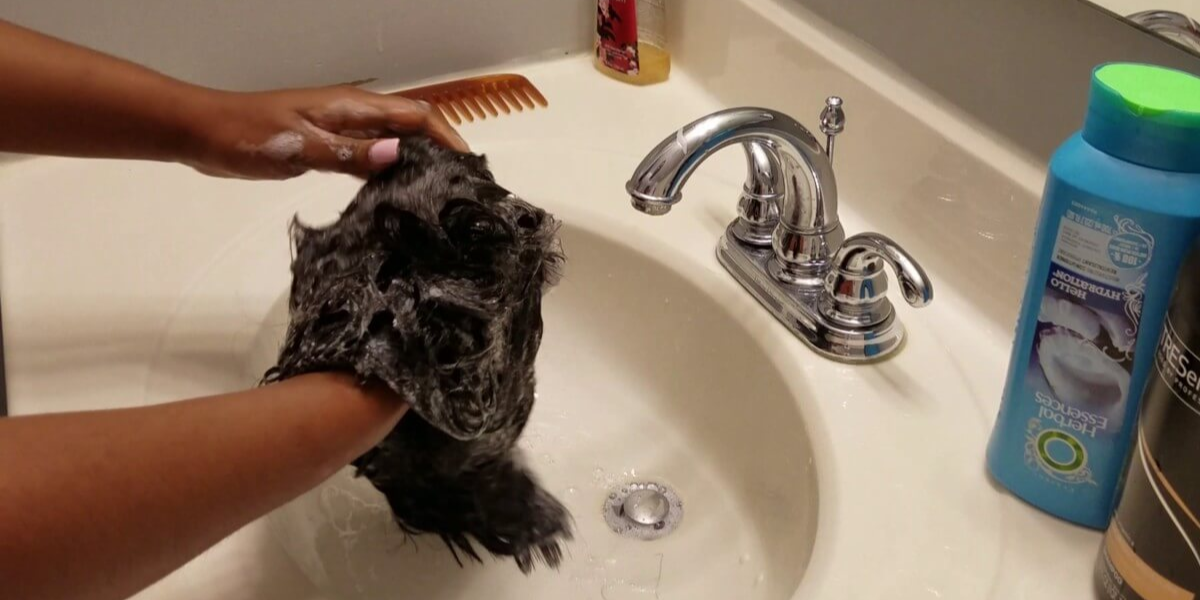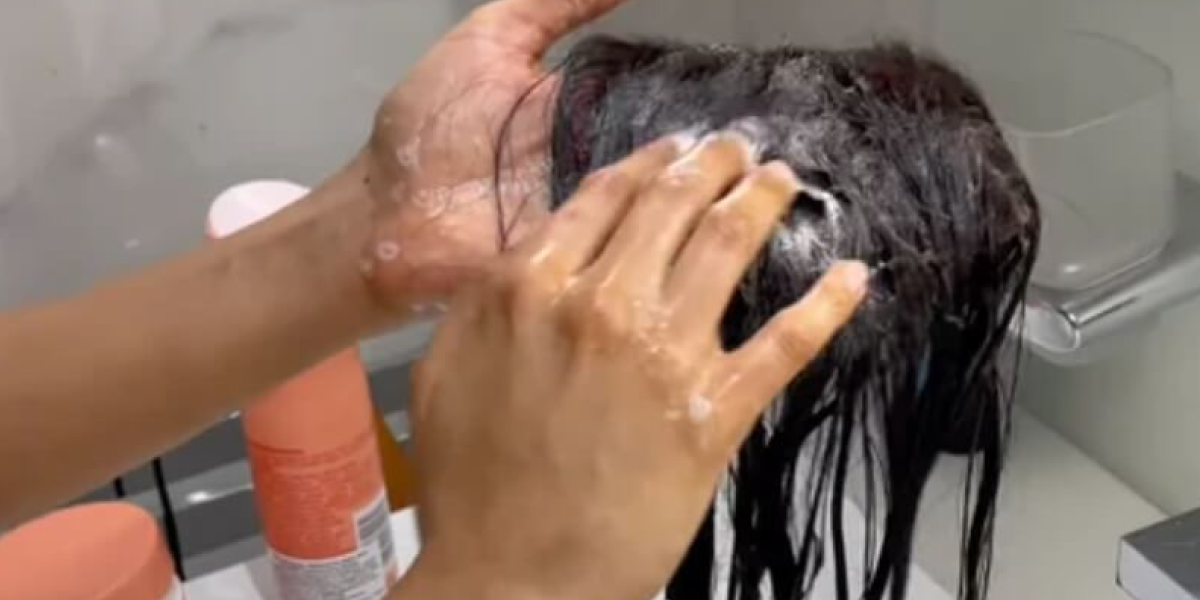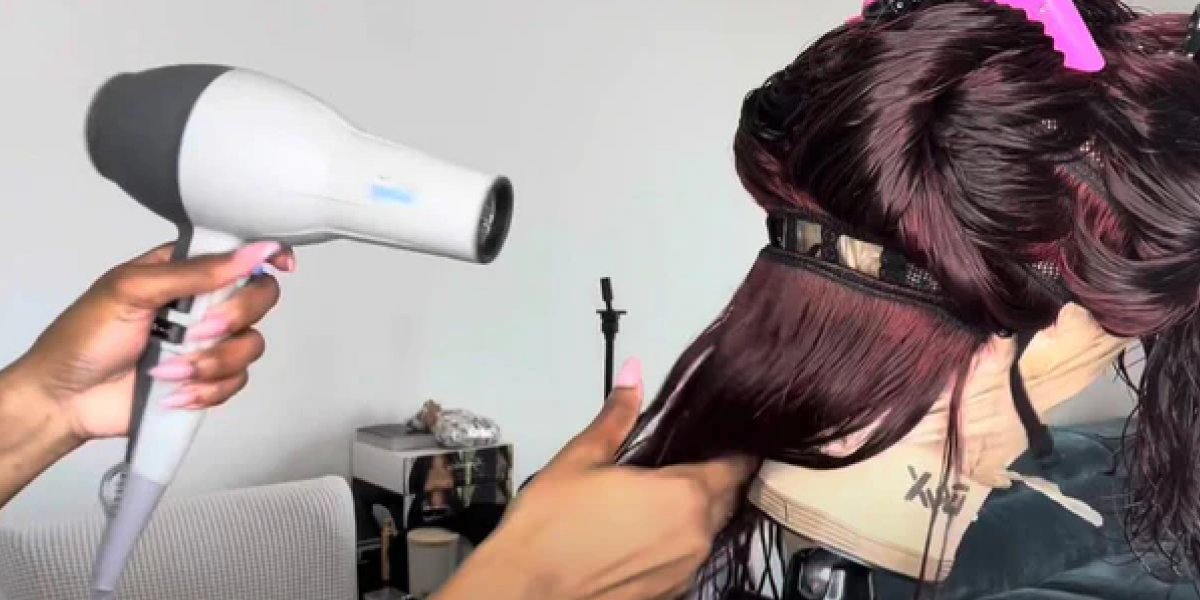You’ve just taken off your wig after a long day, and it’s starting to look a little tired. The shine’s fading, it feels a bit stiff, and honestly, it could use a good wash. But here’s the problem:
Washing a wig feels risky, right? One wrong move and it could shed, tangle, or even lose its shape. You start Googling stuff like “Can I use baby shampoo on my wig?” or “Do I need cold water or warm?” and suddenly it’s overwhelming.
Basically, you’re concerned about how to wash a wig without damaging it. Here’s the good news for you: washing a wig without damaging it is 100% possible. You just need a few right steps, the right products, and a little patience.
So let’s make it easy. We’ll walk you through it step by step. By the end of this, you’ll feel confident enough to wash your wig like a pro and keep it looking amazing for way longer.
Let’s get into it.
Why Wig Care Matters

Wigs can be a big investment. Some high-quality synthetic wigs cost over $100, and real human hair wigs? They can go over $300 or even $600, depending on the length, brand, and quality.
So, just like you care for your natural hair, you’ve got to care for your wig, too.
If you don’t wash it right, the wig can:
- Tangle easily
- Lose its shine
- Smell bad
- Shed or fall apart
And those are not fun to deal with. Common mistakes people make:
- Using regular shampoo
- Scrubbing too hard
- Using hot water
- Blow-drying synthetic wigs
Don’t worry, we’ll avoid all that.
Types of Wigs & Why Washing Methods Matter
Not all wigs are the same. And because of that, how you wash them matters a lot. Different wigs need different kinds of care. If you wash them all the same way, you might damage one without even realizing it.
Let’s break it down step by step.
Synthetic vs. Human Hair Wigs
This is the biggest difference you’ll see in wig care. So let’s look at both.
Synthetic wigs are made from man-made fibers. They’re usually more affordable and already come pre-styled. You can just wear it and go. But the thing is—they’re more delicate when it comes to heat and products.
Human hair wigs, on the other hand, are made with real hair. They look and feel super natural. You can curl, straighten, and treat them just like your own hair. But they also need a bit more TLC to keep them healthy and soft.
Here’s a simple chart to compare both:
| Feature | Synthetic Wig | Human Hair Wig |
| Cost | Cheaper (over $100) | Over $300 or even $600 |
| Can you use heat? | No (unless heat-safe) | Yes |
| Needs special care? | Yes | Yes |
| Lifespan (daily use) | 4–6 months | 1 year or more |
If your synthetic wig says “heat-resistant” or “heat-safe,” you can use styling tools—but always on low heat. And when it comes to washing? Be just as gentle as you would with a regular one.
Wig Cap Construction
The base or cap of your wig also matters. It’s the part that holds everything together. The type of cap your wig has changes how you wash it, especially where to be extra careful.
Let’s look at the common types:
- Lace front wig – This has lace just in the front. It gives a natural hairline look, which is awesome. But that lace is delicate. When washing, you need to be gentle around the front so you don’t tear it.
- Full lace wig – This one has lace across the whole base. It looks super natural and is breathable too. But again, the lace is thin and soft, so be very careful while washing or handling it wet.
- Machine-made wig – These are sturdier. The cap is thicker and stronger, so it holds up better during washes. They’re not as natural-looking, but they can handle a bit more when it comes to washing.
If you’re wondering how to wash a lace front wig, just think “gentle hands.” Don’t scrub the lace, don’t rub it, and never twist it when it’s wet. Just dip, rinse, and let it be.
How Often Should You Wash a Wig?

Think of this like washing your favorite sweater. You don’t need to wash it every time you wear it.
How often depends on:
- If you wear it daily, wash it every 7–10 wears.
- If you wear it occasionally, wash it every 3–4 weeks.
- If you sweat a lot or live in a dusty area, maybe wash sooner.
Signs it’s time:
- Wig smells weird
- Hair feels sticky or oily
- It looks dull or stiff
What You Need Before Washing a Wig
Get your tools ready:
- Wig brush or wide-tooth comb
- Sulfate-free wig shampoo (very important)
- Conditioner (only for human hair or wig-specific ones)
- Bowl, basin, or clean sink
- Lukewarm water (not hot!)
- Wig stand or towel to dry
Wondering can you use regular shampoo? No, regular shampoo has harsh chemicals. It strips wig fibers. Always use wig shampoo or baby shampoo (if it’s sulfate-free).
Steps on How to Wash a Wig Without Damaging It
Washing a wig doesn’t have to be scary. You just need to know the right way. Let’s do it together, step by step.
A. Detangle Gently
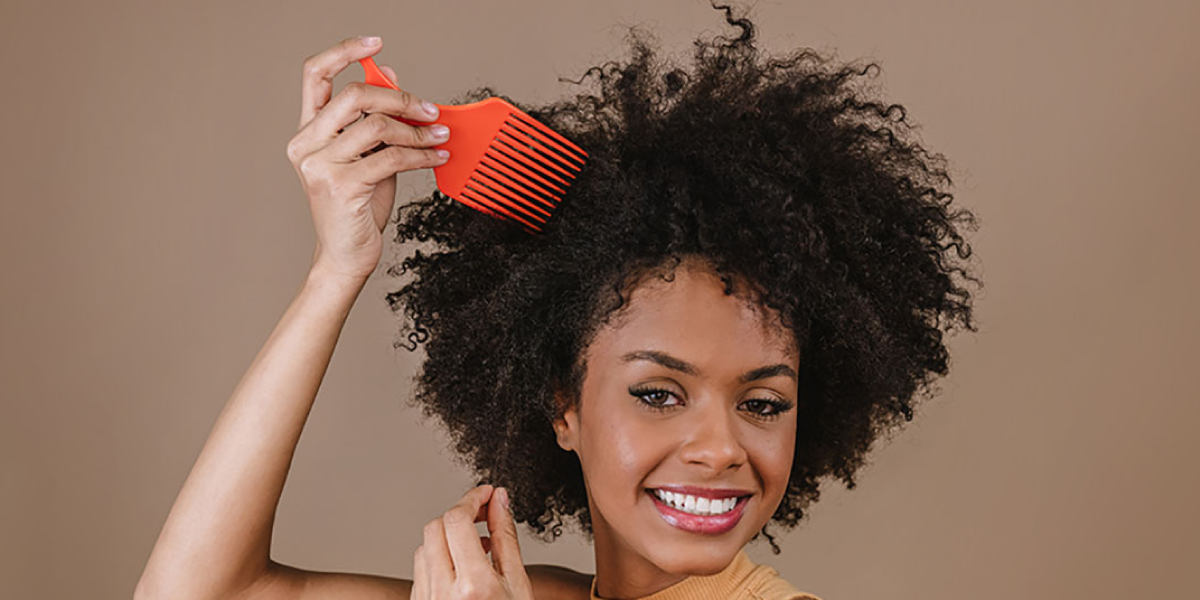
Before you even touch water, you need to gently detangle your wig. Trust us, this one step can save you from a whole mess later. Just grab a wide-tooth comb or a wig brush and start from the ends, working your way up to the top.
Don’t yank or pull. If you hit a knot, pause and slowly loosen it with your fingers. This makes washing smoother and keeps the hair from breaking or matting up when it’s wet.
B. Prepare the Wash
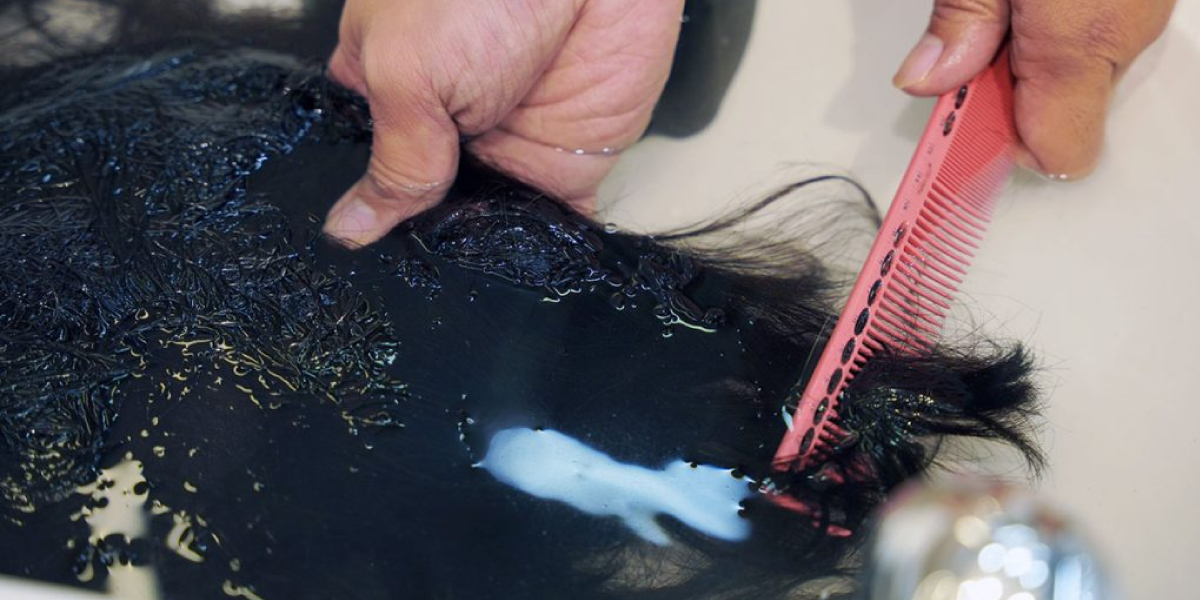
Now, fill up a clean sink or a bowl with lukewarm water, not hot. Hot water can mess up both synthetic and real hair wigs. Add a small amount of wig shampoo, about a capful, and gently swirl it into the water with your hand. That’s it.
You’ve got your wash mix ready. And yes, it’s totally okay to dip the wig into water—just don’t soak it for hours. A short soak and a few swishes are all it needs.
C. Wash the Wig
Place your wig gently in the water and slowly swish it around. Let it move softly like you’re washing something delicate, like a silk blouse. No scrubbing or twisting, okay? Just guide it with your hand.
Focus a little more on the inside cap area since that’s where sweat and product build up. You don’t have to be rough for it to get clean. Think soft and careful—it works better than you’d expect.
D. Rinse Thoroughly
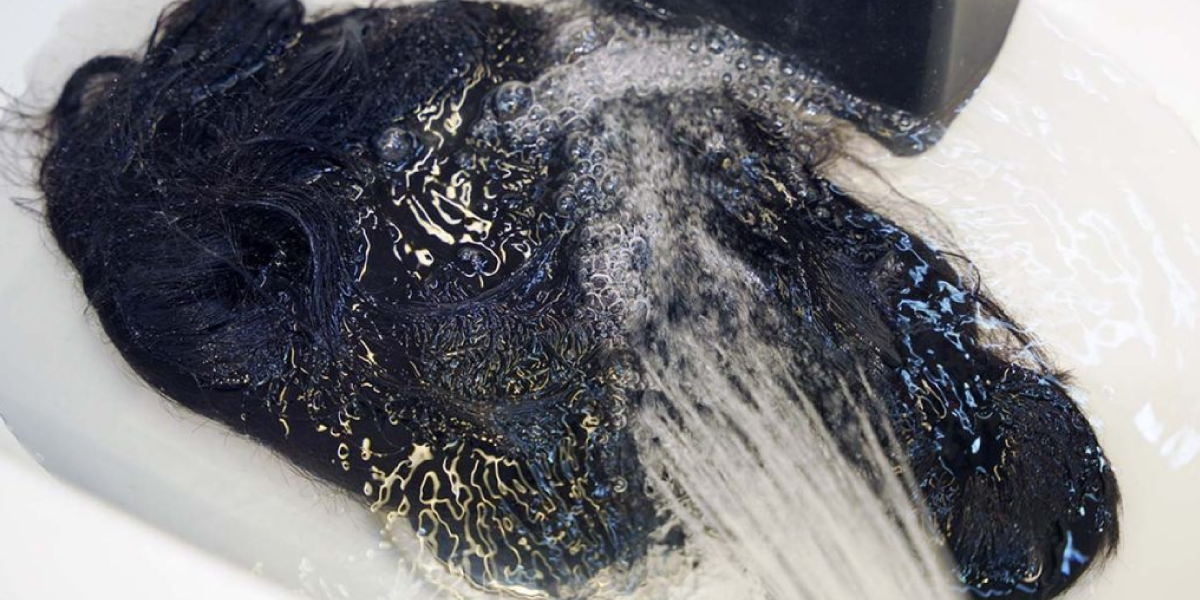
Take the wig out of the soapy water and hold it under fresh lukewarm running water. Let the water run from the top down so it rinses everything out without creating tangles. Don’t shake it, don’t wring it like a towel, and definitely don’t twist it.
Just let the clean water flow through and wash the shampoo away gently. If any product is left behind, it can make the wig feel stiff, so rinse well.
E. Condition Carefully
If your wig is human hair, or your synthetic wig label says it’s okay, go ahead and use a small bit of wig conditioner. Just apply it to the ends, not the roots or the cap, because conditioner up there can loosen the knots that hold the hair in place.
Rub a tiny amount between your hands and smooth it through the ends. Let it sit for about five minutes, then rinse it out gently with cool or lukewarm water.
If it’s a synthetic wig and doesn’t allow conditioner, just skip this step and use wig spray later after drying.
F. Dry the Wig
When you’re done rinsing, gently pat the wig with a clean towel to soak up extra water. Don’t rub or wring it. Then place it on a wig stand or a tall bottle to air dry. This helps the wig keep its shape.
Avoid using a blow dryer, especially on synthetic wigs, because the heat can melt or damage the fibers unless the wig is heat-safe. Let it dry naturally in a cool, dry spot—and you’re good to go!
Special Wig Care Tips
- Using fabric softener: Some people mix a capful of softener in water for synthetic wigs. It can soften fibers. Use only once in a while.
- Colored wigs: Use color-safe shampoo. Avoid sunlight when drying to stop fading.
- Heat-resistant wigs: Still avoid curling irons if you can. Or use at the lowest heat setting.
Mistakes to Avoid
- Using hot water
- Using regular shampoo
- Scrubbing the wig
- Twisting or wringing it
- Blow-drying synthetic wigs
- Overwashing (don’t wash it more than needed)
Wigs often become necessary when your hair gets damaged or starts thinning. So, here are three helpful guides: one on how to repair damaged hair, another on the best shampoo and conditioner for thinning hair, including tips on how to get thicker hair.
How to Store a Wig After Washing
Once your wig is completely dry, the best way to store it is by placing it on a wig stand. This helps keep its shape and prevents it from getting flat or tangled. If you don’t have a wig stand, a satin or silk bag works great too—it keeps the hair smooth and protected.
Always store your wig away from heat, sunlight, or damp places. A cool, dry shelf or drawer is perfect. Just make sure it’s clean and dust-free so your wig stays fresh and ready to wear.
Bonus Tips: Keep Your Wig Fresh Between Washes
To keep your wig looking and smelling nice between washes, you can use a light wig spray. It adds a bit of shine and a soft, clean scent. For human hair wigs, dry shampoo is also helpful if the roots start to feel oily—just spray a little and brush it through.
And here’s a great trick: always wear a wig cap under your wig. It helps absorb sweat and oils from your scalp, which means your wig stays cleaner for longer and you won’t need to wash it as often.
Wrapping Up
Learning how to wash a wig (human hair or synthetic) properly isn’t hard. It just needs a little care. Follow the steps above, use the right products, and treat your wig gently. It’ll last longer, look better, and save you money in the long run.
If you’re ever unsure, check the wig label. When in doubt, treat it like fragile silk clothing.
FAQs
|


